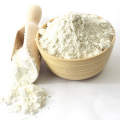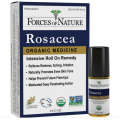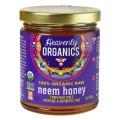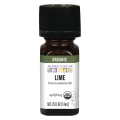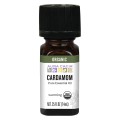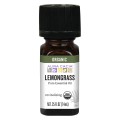 Loading... Please wait...
Loading... Please wait...- Home
- About Us
- Shipping, Returns & FAQ's
- Contact Us
-
For Your Information
- Canadian Customers Have a Choice if Shipping Via UPS
- Aura Cacia Homemade Aromatherapy Recipes
- Bella Nella Altered Art & Paper Crafts Blog
- Forms of Herbal Preparations
- Laundry Tips To Conserve Energy Blog from The Laundress
- The Story of Frontier Natural Products Co-Op
- Sovereign Silver Hydrosol and Aloe Protocol Stops Downward Spiral of Gut Dysbiosis
- Disclaimers
- Recommended Links
- RSS/Recent News
- The Story of Typhoon Housewares
- Reviews/Testimonials
- Raw Ingredients for Mfg
- Home
- Aromatherapy
- Essential Oil Singles
- Neem Essential Oil Organic 100% Pure Bulk
Neem Essential Oil Organic 100% Pure Bulk
Product Description
 In India it has been labeled the wonder tree of the world. Neem is a fascinating and versatile plant and using neem has many benefits. They provide effective ingredients for traditional and modern toothpastes, medicines, cosmetics and insect repellents in South Asia. Neem leaves, its seeds, and roots can be made into various medicinal remedies for a wide range of ailments, ranging from anti-hemorrhoids and loss of appetite, to leprosy and other skin disorders.
In India it has been labeled the wonder tree of the world. Neem is a fascinating and versatile plant and using neem has many benefits. They provide effective ingredients for traditional and modern toothpastes, medicines, cosmetics and insect repellents in South Asia. Neem leaves, its seeds, and roots can be made into various medicinal remedies for a wide range of ailments, ranging from anti-hemorrhoids and loss of appetite, to leprosy and other skin disorders.
Neem leaves to cure skin diseases such as boils, ulcers, eczema, and ring worm. Pastes and extracts from Neem trees have also proven effective in treating various skin fungus conditions, including athlete's foot and lesions in the mouth and vagina. More serious diseases such as chicken pox and small pox have been treated with Neem tree pastes; and even people suffering from herpes and hepatitis B viruses have obtained relief from neem tree preparations
Neem oil is a vegetable oil which is extracted from the fruits and seeds of neem tree. The oil is light to dark brown depending upon its method of processing and extraction. It is very bitter to taste, attributed mainly because of triglycerides and triterpenoid compounds, and has a strong fragrance. Neem oil is hydrophobic in nature. It also contains steroids and naturally occurring organic chemicals like triterpenoids. It is used for several purposes because of the benefits it provides, however, it is not used as a cooking oil.
Benefits of Neem Oil
- Neem oil contains antiviral and antibacterial properties that makes it the first choice in over a hundred household, agricultural, medicinal, and cosmetic products.
- The active compounds found in its extracts and finished products are used to prepare not only traditional medicines, but also modern ones.
- It is beneficial for those who suffer from various skin conditions like acne, psoriasis, eczema, skin ulcers, etc.
- Its astringent properties promote wound healing of minor cuts, bruises and gashes. Probably the reason you will find many ointments carry neem oil as its primary component.
- Application of neem oil combined with a carrier oil helps to treat hair-related problems like dandruff and itchy scalp.
- Dental care products like toothpaste, mouth washes, and rinses contain neem oil as it has antiseptic properties which keep teeth and gums healthy, and free of infection.
- Neem oil also strengthens an individual's resistance to disease by boosting the immune system.
- It is used in preparing medicines that treat diabetes, arthritis, blood disorders, digestive problems.
- The oil inhibits the growth of free radicals that are responsible for the development of certain kinds of cancer.
- Neem oil is and can be incorporated in household items like mosquito repellents, disinfectants, and personal hygiene products.
- Many skin care products including cosmetics use neem essential oil. It is popular in almost all products of aromatherapy that help restore mental health.
- One will find an array of neem oil products used as pesticides, fungicides, and germicides for clearing plant pest and infections. Its active ingredients inhibit the growth of insects by interrupting their life cycle.
- It is also useful for treating minor infections in animals.
Safety Precautions
Always be sure to get advice from a medical professional before consuming essential oils internally or applying directly to the skin, as certain essential oils can cause discomfort and harm if used in this way. Keep them out of reach of children, as with any other medicine, as many essential oils can be very dangerous if ingested in large quantities or if they come in contact with the eyes or sinuses.
Citrus oils, such as lemon and bergamot, can cause a rash if applied to skin that is then exposed to direct sunlight. Be very careful not to get essential oils near the eyes or the ears, and be sure not to handle your contact lenses when you have just been using essential oils. Oils such as cinnamon, clove and lemongrass can cause a great deal of eye irritation.
Pregnant women should always consult their doctor before using essential oils, especially those which contain hormone-like elements, such as sage and fennel. Epileptics and individuals with high blood pressure should similarly consult a doctor before working with essential oils.
It is recommended to dilute essential oils with a carrier oil. If you are going to apply essential oils to the skin without dilution, try them out on the bottom of the feet, first, as this is one of the safest places to apply essential oils and you can see if your body reacts negatively. And if you are advised by a professional to take certain essential oils internally, be very sure to dilute them in a liquid such as soy milk that is oil-soluble.
Botanical Name: Azadirachta Indica
Origin: India
Notes: Kosher. Non-irradiated. aka Nimba
You Recently Viewed...
Currency Converter
Choose a currency below to display product prices in the selected currency.




